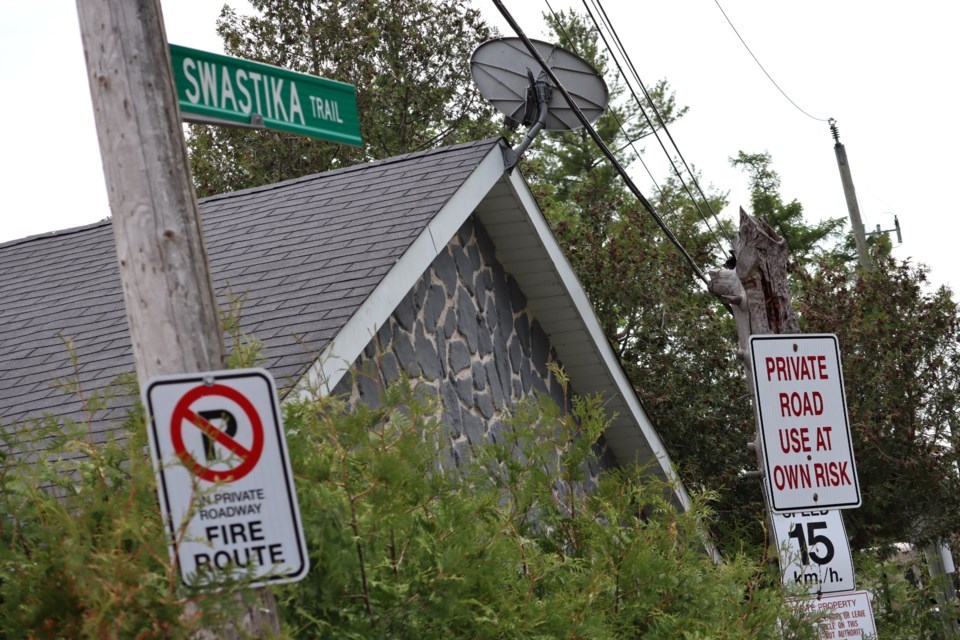PUSLINCH — A word symbolizing hate, genocide, and terror is coming down.
Puslinch council voted 4-1 in favour of changing the name of Swastika Trail to Holly Trail at its Wednesday meeting.
The lone vote against the change came from mayor James Seeley.
“Because this is a private road. It is private property. And the federal government has not banned the symbol or the word because it’s protected maybe at arms length through Charter of Rights and Freedoms, I cannot support changing the name,” Seeley said.
Others took issue with the hatred associated with the word.
“Respectfully, this is not a complicated issue. The swastika is the most universally-recognized hate symbol in Canada today. It is the symbol of genocide as experienced by Jews during the Holocaust in which six million innocent men, women, and children were slaughtered simply for being Jews. Sadly, it continues to be used today to rally neo-Nazis and to intimidate protected minority groups,” wrote Bernie Farber, chair of the Canadian Anti-Hate Network in support of the change.
Although some local residents on Swastika Trail have supported keeping the name, several people from the community came to the council meeting to voice their strong opposition against the street name and its connotations.
On top of that, Swastika Trail, as a name, does not fit with the relevant street naming policy.
“For decades, Puslinch residents have asked that Council retire Swastika Trail as a street name in our community. We are encouraged by your Council’s adoption of a street naming policy as a means of considering the impact that such names have on residents and perceptions of Puslinch. We ask that you endorse our request to rename Swastika Trail accordingly,” wrote Randy Guzar, the longtime proponent of the name change who was one of several residents delegating on Wednesday.
It was pointed out that the Holocaust and other crimes of the former Nazis government still impact people today.
“But let me remind you that millions of people don’t have the privilege of ignoring what the swastika stood for. As you know, people still alive today have lost their sisters, brothers, parents, and friends because of the hatred and atrocities fuelled by the Nazis,” said delegate Alexis Van Esch.
Another issue raised was the need to respect Canadian soldiers who waged war against the Nazis.
“This symbol also represents an enemy regime that took the lives of 45,000 of our Canadian soldiers who so courageously crossed the ocean to a foreign land to stand up for our freedoms. It seems to me such a profound disrespect to our heroes, our Canadian heroes who sacrificed so much to stop the spread of Naziism and to stop Hitler” said delegate Jaime Kirzner-Roberts.
In the past, it has been suggested that the street name and its use did not have Nazi related origins and that it was meant to put forward a more positive idea.
“We know that the understanding of the word swastika has been used on the private road since the early 1900s and during that period it was considered good luck,” Coun. Sara Bailey said.
Jesse Gault is the Local Journalism Initiative reporter for GuelphToday. LJI is a federally-funded program.



